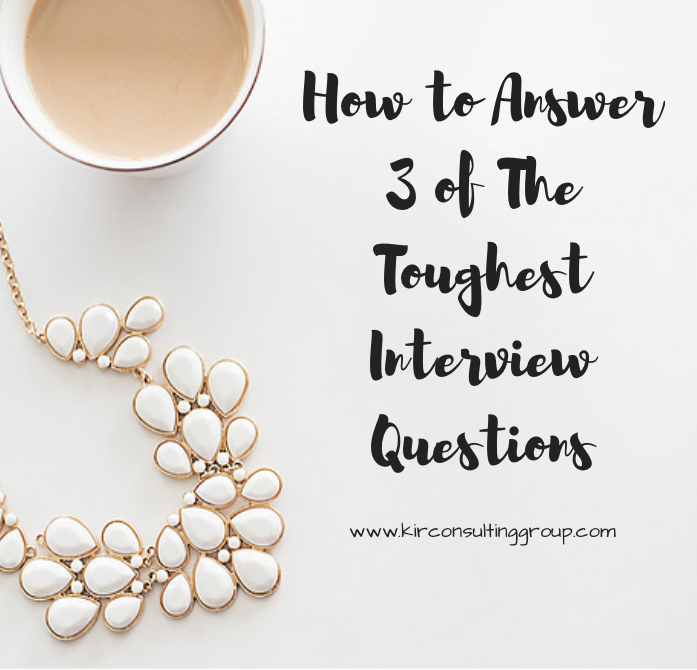Did you know that the process of getting hired for a job starts way before you show up for the actual interview?
That you’re being judged evaluated by recruiters from the very first time they come in contact with you (whether it’s on the phone or in person)?
Anyone who’s successful at interviewing knows there’s really only one thing that sets them apart from the hundreds of other candidates vying for the same jobs.
They know there’s only one thing that means the difference between hearing “you’re hired” and … well, *crickets*.
And yet the first thing most job seekers do after confirming the details of their upcoming interview is to start researching job interview tips – which focus specifically on what to say and do during your interview and almost exclusively ignores what to say and do before the interview.
While it’s probably no surprise that the company you’re interested in interviewing with has an interview strategy – where recruiters and hiring managers spend countless hours thinking about their hiring goals, creating the perfect job description, posting available jobs and screening candidates, picking the right fit – have you ever stopped to consider the benefits of creating your own personal interview strategy as well?
Yes. You. The person being interviewed – should have a strategy.
This is the single most effective job interview tip that separates successful interviewers from everyone else.
The worst thing anyone who’s serious about coming out the other side of the interview process with an actual job offer can do is to just go through the motions without being deliberate and strategic about what they’re doing.
Of the 95% of people who feel they’ve “nailed it” in an interview, only 14% of them actually did. And you can be sure that more often than not, those in the successful pool of candidates not only implemented the normal job interview tips, but also had a well thought out strategy before they even scheduled their first interview.
If you aren’t sure if your interview strategy needs work (or if you’ve never even heard of this before), you’re definitely not alone. Most people feel they can just “wing it” through the interview process, resting solely on their experience and/or networking skills, only to realize this isn’t the case after months or years spent going on interview after interview with no resulting job offers.
Before you send out one more resume or submit a job application anywhere, it’s critical you develop an interview strategy so compelling you’ll have to put your phone on silent just to get a break from all of the recruiters calling to offer you a job at their company.
One of the very first steps you’ll need to take for that to happen is to decide what you’d like your interview brand to be. Your interview brand should complement your personal brand and is basically how you’d like to be remembered by anyone who comes in contact with you during the interview process.
While your interview brand won’t be explicitly referenced on your resume or during your interviews, all of your resume bullet points, email correspondences, answers to interview questions, etc. should center around this brand.
Think of 3-5 words you want to be left in the interviewer’s mind after they’ve read your resume, talked to you on the phone, or met you in person.
For example, do you want to be seen as data driven, team oriented and technologically savvy? Or as a creative project manager with the ability to teach and train junior members of your team? These are prime examples of a strong interview brand.
Some of the key things to think about when deciding on your interview brand are: why you’re the ideal candidate for the specific role you’re interviewing for, the unique value you’ll bring to the table if hired and what aspect of your experience that will not only be relevant, but memorable to a recruiter or hiring manager.
Once you’ve decided on the theme you want to convey, you’ve got to make sure everything you do is consistent with it. This includes what you say, what you do – even how you dress. Everything matters and nothing is off limits.
Now that you’ve developed your interview brand, it’s time for you to begin the actual preparation process – which in an average interview strategy most likely includes a quick once over of the ‘About Us’ section on the company website and glancing at the job description the night before. This approach is the opposite of what a successful interview strategy looks like and isn’t what will ultimately get you the outcome you’re looking for – a job offer.
Instead of just preparing for an interview, you’ll need to get into the habit of strategic preparation. This means prepping for your interview in such a way that all but guarantees you’ll be seen as an ideal candidate for the position.
- For example, strategic interview preparation includes:
- Knowing ‘why’ you’re interviewing for a specific role
- Organizing all of your past experience into your professional story
- Being able to explain why your experience makes you the ideal candidate for the role
- Knowing the key points about the company you’re interviewing for
- Getting to know the background of your interviewers
- Being able to answer interview questions in a way that highlights your value
- Preparing customized and relevant interview questions to ask during the interview
As you can see, strategic preparation isn’t a simple process – and it isn’t something that’s often included in job interview tips conversations – but it’s a critical part of interview success.
The fact that you’ve made it to the interview phase is a feat only a small number of candidates ever get to. Considering only 8-10 people get called in for an interview out of hundreds of applicants, it’s in your best interest to make sure you put your best foot forward so that you’ll be able to stand out in the process.
Think about what you’ve done previously to prepare for interviews you’ve had and how you could have improved your approach based on what you now know about strategic preparation and interview strategy.
If you’re serious about excelling at the interview process and need help creating your own interview strategy, sign up for my free Interview Success email class today. Learn the 5 research-backed and proven job interview preparation tips you need to succeed in your next interview.







